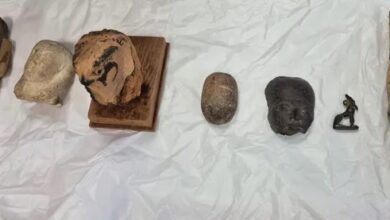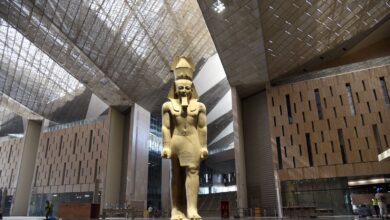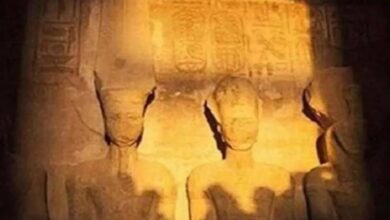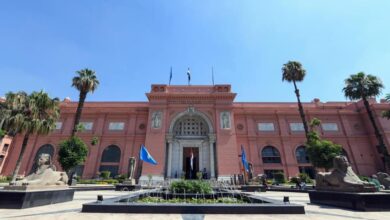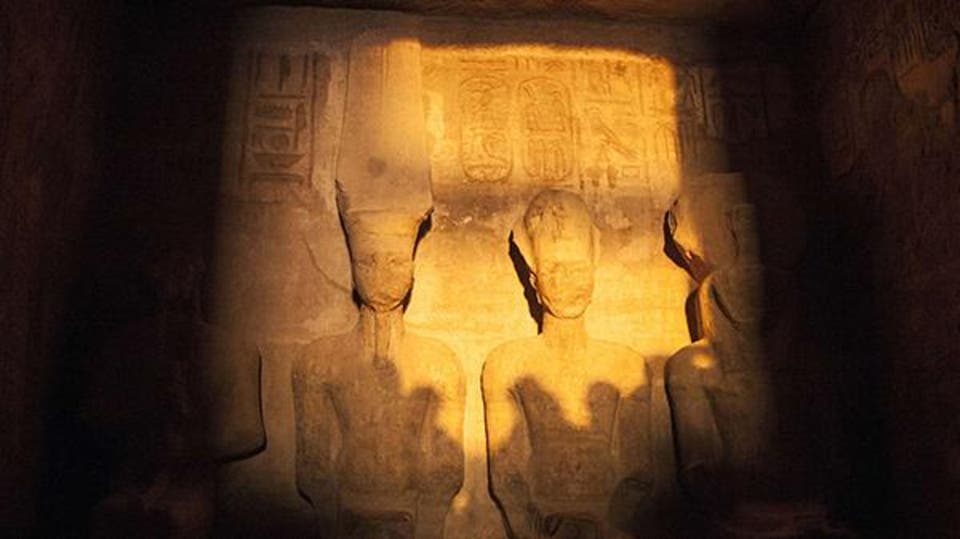
Tourists both foreign and domestic witnessed a biannual sun alignment on Monday, which lighted up the statue of King Ramses II in Aswan’s Abu Simbel temple.
This unique phenomenon takes place just twice a year, on October 22 to mark the king’s birthday and the beginning of the growing season and again on February 22 to celebrate his coronation and the start of harvest season.
On these two days, the temple opens its doors for tourists at three am in order to facilitate viewings of this special occurrence, which lasts for about 20 minutes.
Hundreds of tourists queued in order to watch the sunlight penetrate sixty meters into the temple, lighting up the king’s face.
Archaeologist Abdel-Moneim Saeed, the Director General of Aswan and Nubia Antiquities, said that this astronomical phenomenon has continued for nearly 33 centuries.
It embodied the extent of scientific progress that the ancient Egyptians reached, especially in the sciences of astronomy, sculpture, mummification, engineering and photography, he explained, which is also evident in the ancient monuments and buildings that they built.
The phenomenon began at 6:25 am and continued for 25 minutes, during which the sun’s rays went 60 meters inside the temple, passing through the colonnade hall to the Holy of Holies where sunlight illuminated the face of the King Ramses II statue.
The sun also shone on the statues of the sun gods Re-Horakhte and Amon-Re, seated next to Ramses II. The statues sit in the company of the Theban god of darkness Ptah, who remains in the shadows all year.
Ramses II was the third pharaoh of Egypt’s 19th Dynasty. He is regarded as the most powerful and celebrated pharaoh of Egypt, and was the husband of the famous Queen Nefertari.
The king was responsible for numerous military campaigns that expanded the empire, as well as the construction of temples and statues throughout the region.

